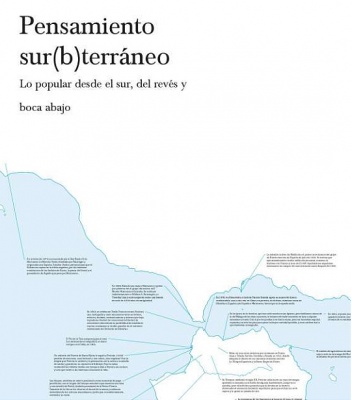Descripción de la Exposición
Brazilian artist and researcher Camila Sposati, renowned for her interdisciplinary artistic oeuvre, presents her exhibition Breath Pieces (Part II) at the ifa Gallery Berlin. Having premiered at the ifa Gallery in Stuttgart in May this year, the exhibition represents a renewed voyage into the profound intricacies of sound, the natural world and the symbiotic interweaving of culture, history, science and politics.
As her first comprehensive solo exhibition in Germany, Breath Pieces marks a significant milestone for Sposati. Her creative exploration reveals a distinctive methodology, drawing inspiration from the historical significance of the anatomical theatre – a compelling reference that informs her artistic research. Originating during the European Renaissance, anatomical theatres were venerable lecture halls meticulously designed for the dissection and scrutiny of cadavers. For Sposati, the act of dissection transcends mere historical annotation, becoming a philosophical construct predating the very physicality of these theatres.
Showcasing pieces, a result of her research in different territories and cultures, the exhibition unfolds as a meticulous dissection in itself, with Sposati probing into the annals of history, materials and elemental forces. The show commences with an exploration into crystals, continues with an artistic metamorphosis inspired by the perpetual blaze of Darvaza (a natural gas crater in Turkmenistan that has been burning continuously since 1971), delves into the anatomy of internal part of a body and crescendos with the instrument series Phonosophia – an intricate artistic exploration into the profound the relations of instruments, the player and the sound.
Sposati’s emphasis on discerning the intrinsic nature of sound in Phonosophia elevates it beyond a mere auditory and tactile experience, viewing it as an evolutionary mode of communication across generations. The wind instruments of ceramic and Amazonian natural rubber balata with metal mouthpieces central to the exhibition Breath Pieces, undergo a transformative process in Berlin, assuming a character that defies conventional cultural categorisations. They cease to be mere instruments, evolving into enigmatic entities that actively challenge preconceived cultural notions, dictating the terms of engagement with the observer.
Fundamental to Sposati’s artistic philosophy is a compelling call for a paradigm shift in the perception of objects, particularly those of ethnographic significance. She contends that objects should not be subject to the passive regulation of the observer, rather, that they themselves should dictate the terms of their observation. This revolutionary shift in perspective imparts an active agency to the objects, guiding the observer through clandestine layers of meaning uniquely unveiled within the context of Berlin. Breath Pieces invites the viewer to reevaluate the intricate interplay between elements, history and the multifaceted human experience.
Camila Sposati is a visual artist and researcher born in São Paulo. She holds a Master’s degree in Fine Arts from Goldsmiths College London and currently lives in Vienna as a fellow of the Academy of Fine Arts PhD programme. She published the book Stone Theatre by Revolver (Berlin, 2016). Her work investigates processes of transformation and energy, using methods that often come close to scientific research methodologies. She has transversely examined processes on a microscopic and global scale. In her work, Sposati juxtaposes material and historical processes in order to challenge the material in its official time and its significance. Her Phonosophia instruments address the reversibility of the role of object and subject, which questions who these agents are and what an “object” is. Specifically, the musical instruments pay special attention to the importance of the body of the musician and the instrument and how these bodies provoke each other.

Premio. 13 mar de 2025 - 27 abr de 2025 / Madrid, España
Componer Saberes para imaginar y construir futuros sostenibles

Formación. 27 mar de 2025 - 28 mar de 2025 / CAAC - Centro Andaluz de Arte Contemporáneo / Sevilla, España
Un orientalismo subalterno”, IV capítulo de “Pensamiento sur(b)terráneo"